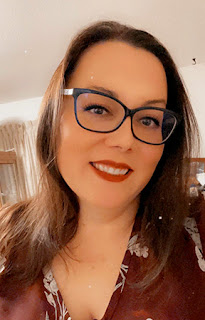 |
| Photo by cottonbro on Pexels.com |
 |
| Photo by cottonbro on Pexels.com |
As our time together comes to an end, let me ask you:
What do you struggle with most when it comes to sharing your truth? (what's holding you back from publishing, or writing that review, or singing that solo?)
What do you ask yourself most often when writing a book review?
Do you completely disagree with my article? I want to hear that too!
Is there a book you think I need to read and review? (I definitely need to hear about these)
Share your answers as a comment on this post!
PS - the painting at the top of this page is one of my most favorite works of art. You may see mistakes - I see something painted by myself and my teenage daughter. We often don't see eye to eye, but we decided to do this together and each worked on a certain part. This painting hangs in my kitchen as a reminder that working together can create something beautiful. This is just one example where MY truth may not align with yours - and that's just fine!
Hugs,
~Crystal
About Today's Author:
Crystal is a foodie, farmer, and friend! She has 6 children and lots of special young people who call her "mom" even if she isn't 'their' mom! She starts each day sipping coffee and milking cows with the love of her life and occasionally ends the day with a glass of wine. Crystal is raising kids and cattle while juggling cleaning jobs, bartending shifts, music gigs, her job as office manager and she escapes reality a few hours each week riding horses and reading books (not simultaneously)! And who knows, she may start blogging again sometime soon: http://bringonlemons.blogspot.com/
In the meantime, you can find her posting pics of food, cattle, and more on Instagram and Facebook!
 |
| Photo by Mikael Blomkvist |
I had one of those moments a few weeks ago when I became paralyzed by choices. Don’t get me wrong, this is a good thing, but it did force me into some decision making. I had a potential sponsor for my podcast reach out to me, but they asked for listener demographics, which I did not have. I took a webinar on “finding a sponsor for your podcast” about a year ago and had a wealth of information at my fingertips but still I’d chosen not to do anything.
I can't say this year has been my best work with writing, but I've been consistently submitting, revising, and typing up stories as much as possible. One short story of mine that's been a touch-and-go process for a while now found some momentum that surprised me.
First, some background. I am not much of an outlining writer. In part, what has helped this, is the fact that I write short stories. But even then, if I ever attempted a novel again, I wonder if I'd feel differently. Whenever I have outlined, it totally drains my momentum to write a story.
However, with the particular I mentioned above, let's call this my "trip to Mars" story, I know the ending already. I wrote a section that is basically the final scene I have in mind. I mentioned it to a writing friend of mine and she told me how she couldn't write like that, that she was a chronological writer.
I realized that I'm completely fine writing out of order. In fact, knowing the endpoint of this story has actually helped me continue writing it. I don't understand how knowing an ending helps me when outlining doesn't. You'd figure that one would be as helpful as the other. But to me, there's a difference.
So, as you try to get yourself back on track, pay attention to what works for you. Maybe you write your endings first, like me. Or maybe you really do better with an outline.
Sometimes you really don't know what has helped you unless you write it out or talk about it. So, if you have a writing buddy, talk about what's helping you continue forward. Pay attention to what helps them and compare and contrast. You might be surprised by what you learn.
 Alexandra's Bio:
Alexandra's Bio: Copyright WOW! Women On Writing Blog. Designed by Georgia Lou Studios